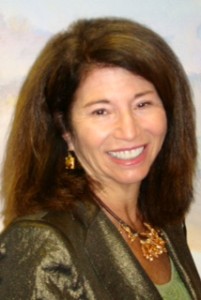- Calls to this hotline are currently being directed to Within Health or Eating Disorder Solutions
- Representatives are standing by 24/7 to help answer your questions
- All calls are confidential and HIPAA compliant
- There is no obligation or cost to call
- Eating Disorder Hope does not receive any commissions or fees dependent upon which provider you select
- Additional treatment providers are located on our directory or samhsa.gov
When Social Anxiety Around Family Affects Your Eating Disorder

Article Contributed by Vicki Berkus, M.D., Ph.D., CEDS, fIAEDP of The Meadows Ranch
The question was asked at a seminar I attended and it started me thinking. Carolyn Costin was talking about first memories you could remember around your weight or your body. I smiled because my mother used to tell the story that after having 4 brothers, 2 miscarriages and 8 years into her marriage, she finally had her girl!
The only problem was that I weighed less than five pounds and they didn’t release babies until they were five pounds. So every day, my mom and the “nanny” would come to the hospital and ask if I had gained or lost a pound. It was a set up for later having the family discuss my weight from that time on into adulthood.
I made up for lost time because my one-year-old picture looked like I was going for the baby heavyweight championship. I am surprised that I ever learned to walk with all the weight I carried.
My brother named me Fatema (fat lady in the circus) or referred to me as lard bucket growing up. Needless to say, the more he teased, the more I ate. So now when I do my initial psychiatric evaluation, I ask the question, “What were the rules around eating, food and access to the kitchen when you were growing up?
Could you eat anything you wanted? Did you have any issues at the table? It doesn’t surprise me that there are usually distinct memories patients bring up and some of these memories follow them as they struggle with their eating disorders.
Extremes of Eating Disorders
The extreme goes from being emotionally and physically abused if meals weren’t finished (clean plate club) to memories of eating alone, or strict rules around sweets. Rarely do I hear that there is nothing they can think of. Many times, I hear “ mom never ate with the family” or the focus in a family was all about food and they had to go to various measures to avoid eating at times.

A patient with anorexia is struggling with the concerns of the family and feels like “everyone” is watching what they are eating. How do you set boundaries with family so they refrain from being the “food police”? It takes a team to work with the patient and their family. Family members (especially dads) want to “fix” the problem.
The frustration and feelings of helplessness can add to the ongoing anxiety. I usually have the family agree to let the nutritionist and the therapist deal with food issues. The family can be part of the team and needs to have a chance to acknowledge their feelings and that is why most programs have entire “family weeks” to help the family cope.
If the therapist is comfortable doing family therapy, this is an important part of recovery. A separate family therapist can also help with ongoing family issues.
Create Plan for Eating Disorders
The first thing I do with patients is to help them understand that they are separate from their eating disorders and I can help them formulate a plan to deal with the anxiety that comes from eating around family. If it is a special occasion and they feel they “have to attend”, then they may decide to have their meal prior to the event and join them for “coffee” at the table.

The hardest thing for most patients is to realize that they can’t control the behavior of others and it is up to them to take charge of their recovery. This might mean choosing not to attend certain events and to put their recovery first. The only person that can “deal” with family caused anxiety is the patient.
I will frequently role play with the patient and help them set boundaries. The anxiety is examined and broken into “manageable parts”. The important thing is that the patient understands that their recovery has to come first and the ability to deal with their anxiety will be an ongoing process.

Vicki Berkus, M.D., Ph.D., CEDS, fIAEDP, of The Meadows Ranch is the Medical Services Advisor for Remuda Ranch at The Meadows. Dr. Berkus specializes in adolescent and adult psychiatry, eating disorders full spectrum, and sports psychiatry. She has served as president of the International Association of Eating Disorders Professionals (iaedp), holds eating disorders certification (CEDS) through iaedp and is a current board member and head of the iaedp education committee. She is active in promoting certification and education in the field of eating disorders for professionals.
Her memberships have included the Academy for Eating Disorders (AED), The American Society of Addiction Medicine (ASAM), The American Society of Bariatric Medicine (ASBP) and the International Society for Sports Psychiatry (ISSP). She has authored numerous articles as well as the highly acclaimed book 10 Commitments to Mental Fitness. Most recently, she was in private practice in Oro Valley, Arizona and served as the Medical Director for the newly established geripsychiatric inpatient program at Oro Valley Hospital. She is now the Medical Director for the new telepsychiatric eating disorders program BrightHeartHealth.com.
For over 25 years, The Meadows Ranch has offered an unparalleled depth of care through its unique, comprehensive, and individualized program for treating eating disorders and co-occurring conditions affecting adolescent girls and women. Set on scenic ranch property in the healing landscape of Wickenburg, Arizona, The Meadows Ranch allows for seamless transitions between its structured multi-phase treatment. A world-class clinical team of industry experts leads the treatment approach designed to uncover and understand the “whys” of the eating disorder through a host of proven modalities. Providing individuals with tools to re-engage in a healthy relationship with food – and with themselves – disempowers eating disorders and empowers individuals with a renewed enthusiasm for life. Contact us today at 888-496-5498 and find out why The Meadows Ranch is the best choice for eating disorder treatment and recovery. For more information call 1-888-496-5498. or visit www.themeadowsranch.com.
The opinions and views of our guest contributors are shared to provide a broad perspective of eating disorders. These are not necessarily the views of Eating Disorder Hope, but an effort to offer discussion of various issues by different concerned individuals.
We at Eating Disorder Hope understand that eating disorders result from a combination of environmental and genetic factors. If you or a loved one are suffering from an eating disorder, please know that there is hope for you, and seek immediate professional help.
Last Reviewed By: Jacquelyn Ekern, MS, LPC on July 2, 2018
Published on EatingDisorderHope.com
